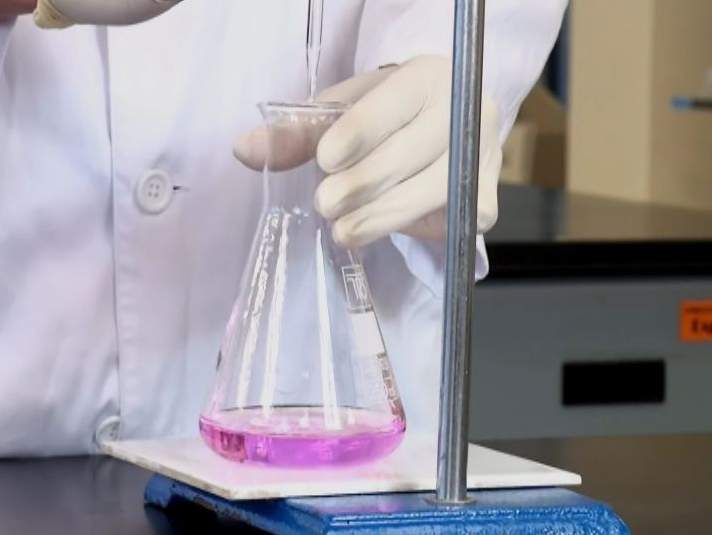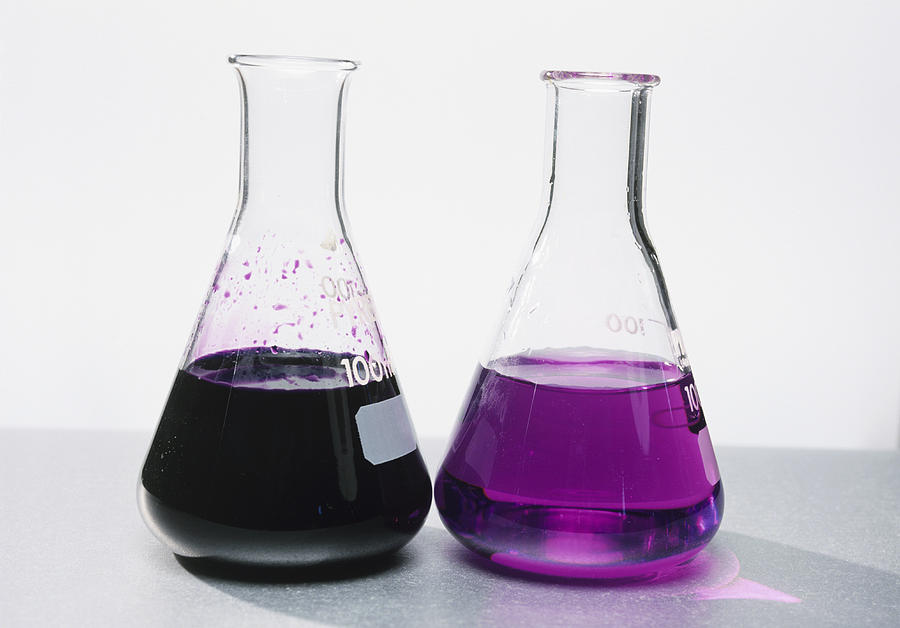
Detection principle of permanganate index in water
Under acidic conditions, add a known amount of KMnO4 to the water sample and heat it in a boiling water bath for 30 minutes. Potassium permanganate will oxidize some organic and inorganic reducing substances in the water sample. After the reaction, add excess sodium oxalate Na2C2O4 to reduce the remaining Potassium permanganate, and then use potassium permanganate standard titration solution to drip back excess sodium oxalate. Through calculation, the permanganate index in the water sample is obtained.Instruments and reagents used to detect the permanganate index in water
(1) 25mL acid burette, 250mL Erlenmeyer flask, 100mL pipette, 10mL pipette, 10mL graduated cylinder, electric furnace, glass beads.
(2) Potassium permanganate stock solution c(KMnO4,)≈0.1moL/L Weigh 3.2g potassium permanganate dissolved in distilled water and dilute to 1200mL, boil, reduce the volume to about 1000mL, and place overnight. After filtering with No. G-3 sand core funnel, store the filtrate in a brown bottle and store away from light
(3) Potassium permanganate standard titration solution c(KMnO4)≈0.01mo/L. Pipette 100mL potassium permanganate standard stock solution in a 1000mL volumetric flask, dilute to the mark with distilled water, mix well, and store in the dark. The concentration should be calibrated on the day of use.
(4) Sodium oxalate stock solution c (Na2C2O4)=0.1000mol/L accurately weigh 0.6705g of sodium oxalate dried at 120°C for 2h and let it cool to dissolve in distilled water, transfer it into a 1000mL volumetric flask, and dilute with distilled water to the mark , Mix well.
(5) Sodium oxalate standard solution (Na2C2O4)=0.1000mol/L Pipette 10.00mL of the above sodium oxalate stock in a 100mL volumetric flask, dilute with water to the mark, and mix.
(6) 1:3 sulfuric acid solution is slowly added 100mL of concentrated sulfuric acid with a density of 1.84g/mL to 300mL of water under constant stirring.

Steps to detect permanganate index
1. Calibration of potassium permanganate calibration solution
Add 50mL distilled water and 5mL 1:3 sulfuric acid solution into a 250mL Erlenmeyer flask in turn, then use a pipette to add 10.00mL0.01000mol/L sodium oxalate standard solution, heat to 70~85℃, use 0.01mol/L potassium permanganate Standard titration solution titration. The solution changes from colorless to just light red, which is the end point of the titration. Calculate the accurate concentration of potassium permanganate standard titration solution.2. Water sample determination
(1) Sampling 100mL of clean and transparent water; take 10-25mL of turbid water, dilute to 100mL with distilled water, and place the water sample in a 250mL conical flask.(2) Add 5mL 1:3 sulfuric acid solution, accurately add 10.00mL 0.01mol/L potassium permanganate standard titration solution (V1) with a burette, shake well, and put in a few glass beads, heat to boiling, start timing, and accurately boil 10min. If the red color disappears, indicating too much organic content in the water, take a smaller amount of water and dilute it with distilled water 2 to 5 times (to a total volume of 100 mL). Use steps 1 and 2 to redo.
(3) After boiling for 10 minutes, accurately add 10.00mL of 0.01000mol/L sodium oxalate standard solution (V2) with a pipette while it is hot, shake it, and immediately titrate with 0.01mol/L potassium permanganate standard solution to reddish. Record the consumption of potassium permanganate standard solution (V’1). Then calculate the permanganate index according to the formula.



